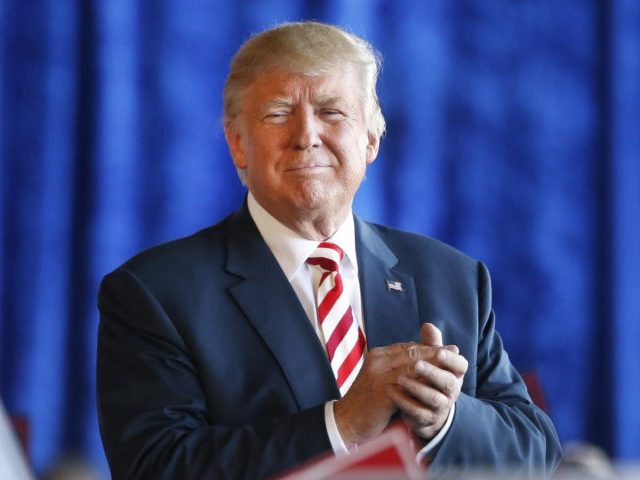The Sunni kingdom of Saudi Arabia has voiced optimism about the desire expressed by incoming President Donald Trump to restore U.S. influence across the globe, contain Shiite powerhouse Iran, and fight the Sunni jihadist group Islamic State (ISIS/ISIL).
“We are optimistic about the incoming administration and look forward to working with it in all areas that are a concern for both of us,” Saudi Foreign Minister Adel al-Jubeir told reporters in Paris on Monday, reports Reuters. “We will look at the Trump administration’s view as articulated. Wanting to restore America’s role in the world, we welcome this. Wanting to defeat ISIS [Islamic State], absolutely. Wanting to contain Iran… absolutely.”
In November of last year, eleven Arab nations in the Middle East and North Africa, including Saudi Arabia and recent allies of Iran like Sudan, penned a letter addressed to the United Nations, warning that “expansionist” and “sponsor of terrorism” Iran had only intensified its policy of “aggression in the region and the continuation of support for terrorist groups” since signing the nuclear deal with U.S.-led world powers.
The United States has officially designated Iran as the top state sponsor of terrorism in the world.
In the letter, the Muslim-majority countries accuse Iran of backing Shiite terrorist organizations “from Hezbollah in Lebanon and Syria, to Houthis in Yemen and terrorist groups and cells in the Kingdom of Bahrain, Iraq, the Kingdom of Saudi Arabia, Kuwait and elsewhere.”
Sunni Saudi Arabia is Shiite Iran’s primary rival in the Middle East.
“It is with a deep sense of frustration that we note that the Islamic Republic of Iran, with its expansionist regional policies, flagrant violations of the principle of sovereignty and constant interference in the internal affairs of Arab States, continues to play a negative role in causing tension and instability in our region,” notes the letter, signed by UN envoys of Bahrain, Egypt, Jordan, Kuwait, Morocco, Oman, Qatar, Saudi Arabia, Sudan, United Arab Emirates and Yemen.
“Unfortunately, since the signing of the nuclear deal, we have seen nothing but increased Iranian aggression in the region and the continuation of support for terrorist groups,” it adds.
Trump has staunchly denounced the nuclear pact reached between Iran and world powers led by the outgoing Obama administration, prompting the U.S. president to warn the incoming administration against undoing the deal.
“I’m not happy with the Iran deal, I think it’s one of the worst deals ever made,” the president-elect reiterated during a recent interview with the Times of London and the Bild newspaper of Germany.
A day after signing the nuclear agreement, President Obama admitted that Iran will likely use sanctions relief money from the deal to fund terrorist organizations.
As part of the nuclear deal, Obama has paid state sponsor of terrorism Iran at least $1.7 billion in cash.
On Monday, the Saudi foreign minister pointed out that the interests of the Sunni kingdom, the world’s largest oil exporter, are consistent with those of the United States — whether it concerns geopolitical or financial issues.
“The objectives we want to achieve are the same. We may have disagreements on how to get there, but we don’t disagree on what needs to be done, and that will not change,” he said.
“Our relationship with Iran is tense and it’s in function of its aggressive and hostile policies. It would be wonderful to live in peace and harmony with Iran, but it takes two to tango,” added Jubeir. “We can’t be subject to death and destruction and expect to turn the other cheek. We tried, but it didn’t work.”
The relationship between the U.S. and Saudi Arabia has been tense since the House and Senate overwhelmingly voted to overturn President Obama’s veto of a contentious law that allows the families of 9/11 victims to sue Saudi Arabia in American courts for any role it may have played in the 2001 attacks.
However, leaders in the GOP-led Congress have said they are open to rewriting the law.
Some experts have warned that Saudi Arabia and its allies have the ability to “reduce valuable security and intelligence cooperation with longstanding ally Washington,” reports Agence France-Presse (AFP).
The statue is expected to “have negative effects on international cooperation in the fight against terrorism,” also warned Minister Sheikh Abdullah bin Zayed al-Nahyan, foreign minister of Saudi ally United Arab Emirates (UAE), before the bill became law.

COMMENTS
Please let us know if you're having issues with commenting.